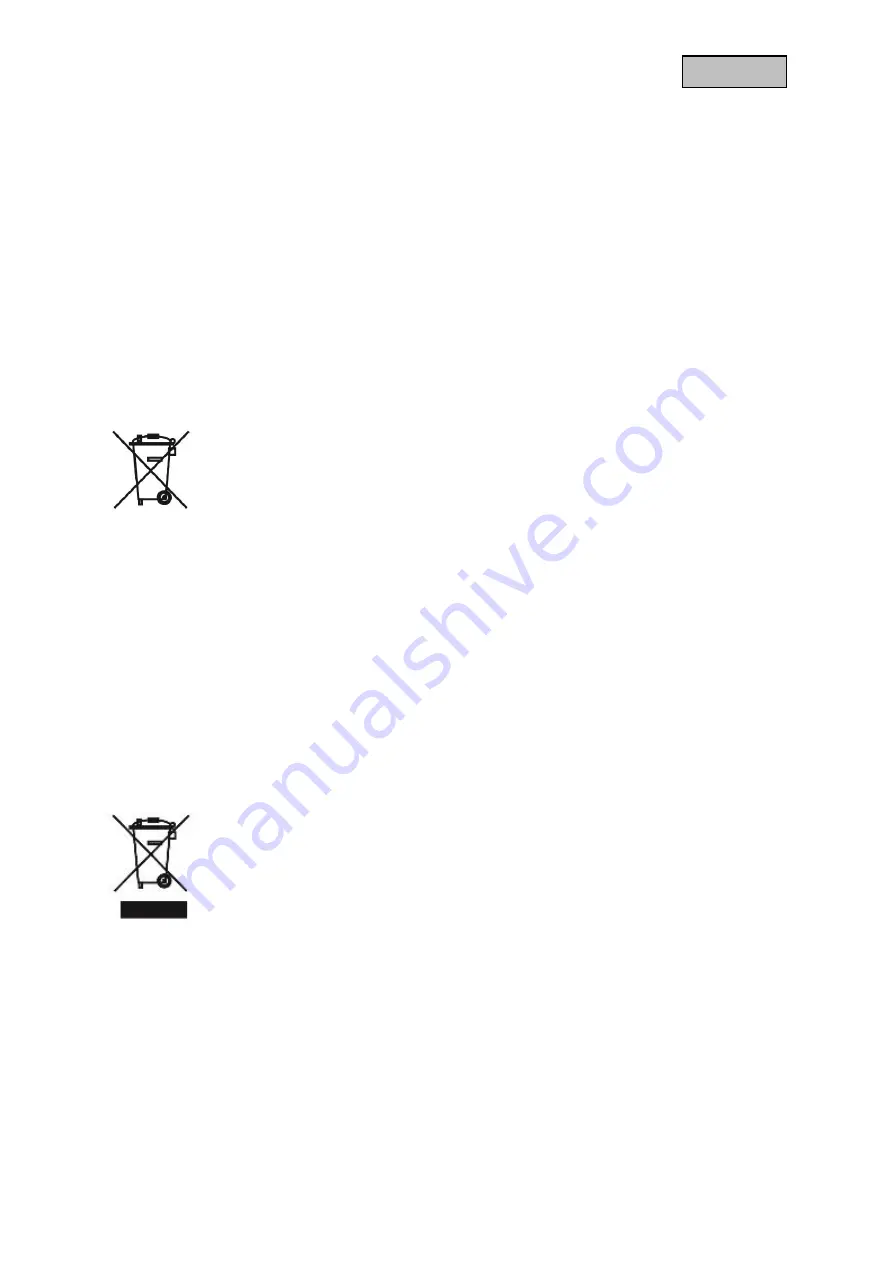
4
English
Information on handling batteries
▪
Make sure that batteries are kept away from small children. Children may put batteries in their
mouths and swallow them. This can cause serious harm to their health. If this happens, consult
a doctor immediately.
▪
Do not charge normal batteries, heat them up or throw them into naked flames (they may
explode).
▪
The battery must not be directly exposed to heat or sunlight, and must not be stored in a place
with a very high temperature.
▪
The battery must not come into contact with water.
▪
The battery must not be dismantled, pierced or otherwise damaged.
▪
The battery contacts must not be short-circuited.
▪
Change low batteries in good time.
▪
Always change all the batteries at the same time and use batteries of the same type.
▪
Leaky or damaged batteries can cause chemical burns on contact with the skin. In this case,
wear protective gloves. Clean the battery compartment with a dry cloth.
Important information on battery disposal
Batteries with this label do not contain harmful substances such as cadmium, lead and
mercury. However, used batteries must not be disposed of along with household waste
in accordance with the battery directive. To protect natural resources and promote the
recycling of materials, separate the batteries from other waste and deposit them at a
local recycling center. An additional label with the chemical symbols for Hg, Cd or Pb
means that the batteries contain quantities of mercury, cadmium or lead which exceed
the restrictions set by the EU Directive 2006/66/EG. If batteries are not disposed of
properly, these substances can cause harm to human health or the environment
Cleaning
▪
Dusty devices must be cleaned. You can clean dust from the air vents using a vacuum cleaner
or compressed air. If necessary, you can remove the dust with a brush.
▪
You can clean the surface using a cloth slightly dampened in soapy water. Only use suitable
microfiber cloths for high-gloss surfaces.
▪
Do not allow water to penetrate the device.
▪
Do not clean the device in a dishwasher.
▪
Do not use sharp, pointed, abrasive or corrosive cleaning materials or hard brushes.
▪
Do not use chemicals.
▪
Do not use flammable liquids for cleaning the device.
Information on device disposal
Important: The EU Directive 2012/19/EU regulates the proper return, treatment and
recycling of used electronic devices. This symbol means that in the interest of
environmental protection the device must be disposed of separately from household or
industrial waste at the end of its service life in accordance with applicable local legal
guidelines. Disposing of used devices can be done at official recycling centers in your
country. Obey local regulations when disposing of material. Further details on returns
(also for non-European countries) can be obtained at your local authority. Separate
collection and recycling saves natural resources and ensures that all the provisions for protecting health
and environment are observed when recycling the product.























